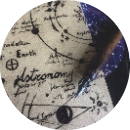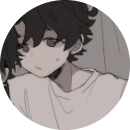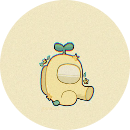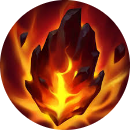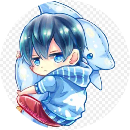5. A. hour | B. house | C. hand | D. head |

Những câu hỏi liên quan
I. Choose the word which has a different sound in the part underlined.1. A. restaurantB. riverC. wellD. left2. A. officeB. behindC. clinicD. picture3. A. hourB. houseC. halfD. hotel4. A. dangerousB. travelC. manD. traffic5. A. truckB. unloadC. turnD. lunch6. A. matchesB. tablesC. phonesD. times7. A. studentsB. villasC. clocksD. streets8. A. watchesB. brushesC. classesD. lives9. A. motherB. clothC. withinD. brother10. A. thisB. healthyC. thatD. father
Đọc tiếp
I. Choose the word which has a different sound in the part underlined.
1. A. restaurant | B. river | C. well | D. left |
2. A. office | B. behind | C. clinic | D. picture |
3. A. hour | B. house | C. half | D. hotel |
4. A. dangerous | B. travel | C. man | D. traffic |
5. A. truck | B. unload | C. turn | D. lunch |
6. A. matches | B. tables | C. phones | D. times |
7. A. students | B. villas | C. clocks | D. streets |
8. A. watches | B. brushes | C. classes | D. lives |
9. A. mother | B. cloth | C. within | D. brother |
10. A. this | B. healthy | C. that | D. father |
1. A. restaurant | B. river | C. well | D. left |
2. A. office | B. behind | C. clinic | D. picture |
3. A. hour | B. house | C. half | D. hotel |
4. A. dangerous | B. travel | C. man | D. traffic |
5. A. truck | B. unload | C. turn | D. lunch |
6. A. matches | B. tables | C. phones | D. times |
7. A. students | B. villas | C. clocks | D. streets |
8. A. watches | B. brushes | C. classes | D. lives |
9. A. mother | B. cloth | C. within | D. brother |
10. A. this | B. healthy | C. that | D. father |
Đúng 1
Bình luận (0)
I. Choose the word which has a different sound in the part underlined.1. A. restaurantB. riverC. wellD. left2. A. officeB. behindC. clinicD. picture3. A. hourB. houseC. halfD. hotel4. A. dangerousB. travelC. manD. traffic5. A. truckB. unloadC. turnD. lunch6. A. matchesB. tablesC. phonesD. times7. A. studentsB. villasC. clocksD. streets8. A. watchesB. brushesC. classesD. lives9. A. motherB. clothC. withinD. brother10. A. thisB. healthyC. thatD. father
Đọc tiếp
I. Choose the word which has a different sound in the part underlined.
1. A. restaurant | B. river | C. well | D. left |
2. A. office | B. behind | C. clinic | D. picture |
3. A. hour | B. house | C. half | D. hotel |
4. A. dangerous | B. travel | C. man | D. traffic |
5. A. truck | B. unload | C. turn | D. lunch |
6. A. matches | B. tables | C. phones | D. times |
7. A. students | B. villas | C. clocks | D. streets |
8. A. watches | B. brushes | C. classes | D. lives |
9. A. mother | B. cloth | C. within | D. brother |
10. A. this | B. healthy | C. that | D. father |
1. A. restaurant | B. river | C. well | D. left |
2. A. office | B. behind | C. clinic | D. picture |
3. A. hour | B. house | C. half | D. hotel |
4. A. dangerous | B. travel | C. man | D. traffic |
5. A. truck | B. unload | C. turn | D. lunch |
6. A. matches | B. tables | C. phones | D. times |
7. A. students | B. villas | C. clocks | D. streets |
8. A. watches | B. brushes | C. classes | D. lives |
9. A. mother | B. cloth | C. within | D. brother |
10. A. this | B. healthy | C. that | D. father |
Đúng 1
Bình luận (0)
Xem thêm câu trả lời
I. Choose the word which has the underlined part pronounced differently.1. A. smallB. gameC. ballD. call2. A. eatB. readC. breakfastD. teacher3. A. hourB. houseC. hereD. help4. A. bigB. cityC. morningD. timeII. Choose the most suitable word or phrase. 1. Children enjoy ___________ cartoons on television.A. watchB. watchingC. watchesD. watched2. He eats a lot of fruits ___________ vegetables.A. andB. butC. orD. so3. This book is different __________ that book.A. onB. atC. forD. from4. We like...
Đọc tiếp
I. Choose the word which has the underlined part pronounced differently.
1. A. small | B. game | C. ball | D. call |
2. A. eat | B. read | C. breakfast | D. teacher |
3. A. hour | B. house | C. here | D. help |
4. A. big | B. city | C. morning | D. time |
II. Choose the most suitable word or phrase.
1. Children enjoy ___________ cartoons on television.
A. watch | B. watching | C. watches | D. watched |
2. He eats a lot of fruits ___________ vegetables.
A. and | B. but | C. or | D. so |
3. This book is different __________ that book.
A. on | B. at | C. for | D. from |
4. We like playing the guitar and our father ___________.
A. do too | B. too | C. does too | D. does either |
5. Son Tung MTP is my favourite singer. He __________ very well.
A. draws | B. sings | C. takes | D. makes |
6. Last week, my classmates __________ new books and clothes for children in flooded areas in some central provinces.
A. donate | B. donates | C. donating | D. donated |
7. Did you buy __________ bottle of cooking oil yesterday?
A. some | B. any | C. a | D. an |
8. ___________ tables are there in the living room?
A. How many | B. How long | C. How much | D. How often |
III. Odd one out
1. A. envelope B. stamp C.letter D. coach
2. A. friend B. uncle C. father D. sister
3. A. room B. picture C. house D. apartment
4. A. songbooks B. guitar C. equation D. music
IV. Write meaningful sentences from the cues below
1. I / learn / play / the guitar / with / my friends / the / moment.
►......................................................................................................................................
2. Mrs. Lan / cook / lunch / homeless people/ street children / a / week.
►.........................................................................................................................................
I. Choose the word which has the underlined part pronounced differently.
1. A. small | B. game | C. ball | D. call |
2. A. eat | B. read | C. breakfast | D. teacher |
3. A. hour | B. house | C. here | D. help |
4. A. big | B. city | C. morning | D. time |
II. Choose the most suitable word or phrase.
1. Children enjoy ___________ cartoons on television.
A. watch | B. watching | C. watches | D. watched |
2. He eats a lot of fruits ___________ vegetables.
A. and | B. but | C. or | D. so |
3. This book is different __________ that book.
A. on | B. at | C. for | D. from |
4. We like playing the guitar and our father ___________.
A. do too | B. too | C. does too | D. does either |
5. Son Tung MTP is my favourite singer. He __________ very well.
A. draws | B. sings | C. takes | D. makes |
6. Last week, my classmates __________ new books and clothes for children in flooded areas in some central provinces.
A. donate | B. donates | C. donating | D. donated |
7. Did you buy __________ bottle of cooking oil yesterday?
A. some | B. any | C. a | D. an |
8. ___________ tables are there in the living room?
A. How many | B. How long | C. How much | D. How often |
III. Odd one out
1. A. envelope B. stamp C.letter D. coach
2. A. friend B. uncle C. father D. sister
3. A. room B. picture C. house D. apartment
4. A. songbooks B. guitar C. equation D. music
IV. Write meaningful sentences from the cues below
1. I / learn / play / the guitar / with / my friends / the / moment.
►..........I am learning to play the guitar with my friends at the moment............................................................................................................................
2. Mrs. Lan / cook / lunch / homeless people/ street children / a / week.
►......Mrs Lan has cooked lunch for homeless people and street for a week...................................................................................................................................
Đúng 1
Bình luận (0)
kiểm tra giúp mik coi được bao nhiêu điểm , mỗi câu 0,2 điểm Đề thi tiếng Anh vào 10 - Đề 1A: PHONETICS (1.0 p)I. Choose the word with different pronunciation from the others. (0.6p)1. A. hourB. houseC. hotD. head2. A. workedB. wantedC. stoppedD. asked3. A. walksB. cupsC. studentsD. pensII. Choose the word whose stress pattern is different from that of the others. ( 1.0 pts)1.A. sewageB. simpleC. hobbyD. describe2. A. dancerB. cyclingC. balloonD. traffic.B: VOCABULARY AND GRAMMAR: (5.0pts)I. Cho...
Đọc tiếp
kiểm tra giúp mik coi được bao nhiêu điểm , mỗi câu 0,2 điểm
Đề thi tiếng Anh vào 10 - Đề 1
A: PHONETICS (1.0 p)
I. Choose the word with different pronunciation from the others. (0.6p)
1. A. hour | B. house | C. hot | D. head |
2. A. worked | B. wanted | C. stopped | D. asked |
3. A. walks | B. cups | C. students | D. pens |
II. Choose the word whose stress pattern is different from that of the others. ( 1.0 pts)
1.A. sewage | B. simple | C. hobby | D. describe |
2. A. dancer | B. cycling | C. balloon | D. traffic. |
B: VOCABULARY AND GRAMMAR: (5.0pts)
I. Choose the best answer. (2.0p)
1. Solar energy doesn’t cause………..
A. pollution
B. polluted
C. pollute
D. pollutant
2. Tet is a festival………… occurs in late January or early February.
A. whom
B. when
C. where
D. which
3. It’s raining. …………….., Mr. Nam has to go to work.
A. Although
B. So
C. Therefore
D. However
4. If I ………….rich, I ……………………….around the world.
A. will be - travel
B. am - will travel
C. were - would travel
D. would be – traveled
5. The girl wishes she………………… in Hue for the festival next week.
A. had stayed
B. was staying
C. stay
D. could stay
6. You don’t like watching this film, …………………?
A. don’t you
B. are you
C. do you
D. did you
7. When he lived in the city, he …………… to the theater twice a week.
A. uses to go
B. has gone
C. used to going
D. was going
8. My house………….. in 1999
A. is built
B. was building
C. was built
D. has been built
9. The entrance examination will be held………………….June 22nd2012.
A. in
B. on
C. at
D. to
10. Hoa: I suggest going camping next Sunday.- Lan: …………………………..
A. That’s a fine day
B. That’s a good idea
C. That’s a reason
D. That’s a good trip
II. Put the verbs in the brackets into the correct tense or form.(2.0p)
1. The weather is terrible today. If the weather (be)…is…… good, I (go)..will go...for a walk.
2. Yesterday, when we (visit)…visited…. them, they (have)..was having.. dinner.
3. I ( write ).wrote. to my pen pal 2 months ago, but I (not receive).hasn’t receive. his reply since then.
4. We would rather (stay)..staying..at home than go out on rainy days.
5. I enjoy (teach)..teaching.., but I don't want (do)..to do..all my life.
6. My house (build)…is builds …..at present.
III/ Supply the correct form of the words in brackets to complete the following sentences. (1.0p)
1. The accident happened because he drove …carelessly... (care)
2. Ai…pollution…is one of the problems that people have deal to with. (pollute)
3. Traditional …celebration... are a good source of fun and entertainment. (celebrate)
4. You should buy this book . It’s very.. informative .. (inform)
5. (Tradition)…traditional..., people eat sticky rice cakes at Tet.
C: READING. ( 2.0 p)
I. Read the text. Then choose the right sentence A, B, C or D.(1.0p)
Last year, we had a nice holiday. My friend and I went to the seaside for a month. I had been to the seaside several times before, but this was the first time for my friend. Naturally, it was the great event for him. Finally, the day came. It was a fine morning. We got up very early because we wanted to leave home after breakfast. We made the journey by car. We reached the seaside at noon. We spent many hours on the beach. We enjoyed making castles and channels in the sand. People said we ought to spend at least a few weeks at the seaside. If we could stay longer, so much the better.
1.How long did the writer and his friend spend at the seaside?
A. week
B. A few weeks
C. A month
D. A few months
2. Who went to the seaside the first time?
A. The writer
B. The writer and his friend.
C. The writer's family
D. The writer's friend.
3. What was the weather like on the day they started their journey to the seaside?
A. It was bad
B. It was rainy
C. It was snowy
D. It was nice.
4. How did they travel to the seaside?
A. By car
B. By train
C. By bus
D. By air
5. When did they reach the seaside?
A. At 8 o'clock
B. At 12 o'clock
C. At 4 p.m
D. At 9 p.m
II. Read the passage and answer the following questions. (1.0p)
Alexander Fleming was born in 1881 in Scotland. He went to a small school in a village, and when he left school he didn’t go to university. He worked for five years in an office. But his brother, Tom, was a doctor and helped Fleming to go to university and study medicine. So he went to London University and in 1906 he became a doctor. In 1915, Fleming married Sarah McElroy, an Irish woman. They had one son. During the First World War, many soldiers died in hospital because they didn’t have the right medicines. So after the war, Fleming tried to find a drug that could help them. He worked for many years and in 1928 he discovered a new drug and he called it “penicillin”. He later worked with an Australian and a German scientist to develop a drug that doctors could use. In 1945, they won the Nobel Prize in medicine for their work on penicillin.
1. Where was Alexander Fleming born?
…It was in Scotland……………………………
2. Did he work in an office before he went to university? ……….………………………….………..
3. What did he study at university? ………………………………………………………….………
4. When did he win the Nobel Prize in medicine? …………………………………………….………
D: WRITING (2.0p)
I. Complete the second sentences without changing the meaning of the first sentences. (1.0p)
1. He has never been late for work.
- Never……………………………………………………………………………………
2. The man is my new boss. He is talking to the lady over there.
- The man …is my new boss who is talking to the lady over there…………
3. “Does Mr. Pike live here?” the postman asked the boy.
- The postman asked the boy ……………………………………….…………………….
4. They will build a new school next month.
- A new school……………………will be built next month……………………….
5. Finding an apartment in a big city is not easy.
- It is …...........................................................................................................................
II. Write complete sentences. (1.0p)
1.we /not/ see/ each other/ for/ 5 years.
……………………………………………………………………………………………
2. Mr Bill/ used/ go /swimming/ when/ he/ young.
…Mr Bill is used to go swimming when he young.……
3. She / be / best / student / class.
…………………………………………………………………………………………
4. How long / it / take / you / go / school / everyday?
…………………………………………………………………………………………
A: PHONETICS (1.0 p)
I. Choose the word with different pronunciation from the others. (0.6p)
1. C. hot
2. B. wanted
3. D. pens
II. Choose the word whose stress pattern is different from that of the others. ( 1.0 pts)
1. A. sewage
2. C. balloon
B: VOCABULARY AND GRAMMAR: (5.0pts)
I. Choose the best answer. (2.0p)
1. A. pollution
2. D. which
3. B. So
4. C. were - would travel
5. D. could stay
6. C. do you
7. C. used to going
8. C. was built
9. B. on
10. B. That’s a good idea
II. Put the verbs in the brackets into the correct tense or form.(2.0p)
1. The weather is terrible today. If the weather is good, I will go for a walk.
2. Yesterday, when we visited them, they were having dinner.
3. I wrote to my pen pal 2 months ago, but I haven't received his reply since then.
4. We would rather stay at home than go out on rainy days.
5. I enjoy teaching, but I don't want to do it all my life.
6. My house is being built at present.
III/ Supply the correct form of the words in brackets to complete the following sentences. (1.0p)
1. The accident happened because he drove carelessly. (care)
2. Air pollution is one of the problems that people have to deal with. (pollute)
3. Traditional celebrations are a good source of fun and entertainment. (celebrate)
4. You should buy this book. It’s very informative. (inform)
5. In traditional settings, people eat sticky rice cakes at Tet.
C: READING. ( 2.0 p)
I. Read the text. Then choose the right sentence A, B, C or D.(1.0p)
1. C. A month
2. B. The writer and his friend.
3. D. It was nice.
4. A. By car
5. B. At 12 o'clock
II. Read the passage and answer the following questions. (1.0p)
1. He was born in Scotland.
2. No, he worked in an office for five years.
3. He studied medicine at university.
4. He won the Nobel Prize in medicine in 1945.
D: WRITING (2.0p)
I. Complete the second sentences without changing the meaning of the first sentences. (1.0p)
1. Never has he been late for work.
2. The man who is talking to the lady over there is my new boss.
3. The postman asked the boy if Mr. Pike lived there.
4. A new school will be built next month.
5. It is not easy to find an apartment in a big city.
II. Write complete sentences. (1.0p)
1. We have not seen each other for 5 years.
2. Mr. Bill used to go swimming when he was young.
3. She is the best student in the class.
4. How long does it take you to go to school every day?
Đúng 0
Bình luận (0)
A happy
B house
C here
D hour
4.Choose the word that has the underlined part pronounced differently
(2.5 Điểm)
A. mountain
B. house
C. country
D. round
Xem thêm câu trả lời
I. Find the word which has a different sound in the part underlined. Say the words aloud.1.A. decorateB. marketC. resolutionD. celebrate2.A. smileB. soC. springD. noise3.A. parent B. travelC. handD. bad4.A. loveB. motherC. pagoda D. come5.A. luckyB. shyC. whyD. buyII. Choose the correct answers.1. Do you believe that the first footer ________ us good or bad luck?A. must takeB. should bringC. can makeD. can bring2. Students __________ copy their classmates’work.A. shouldB. shouldn’t...
Đọc tiếp
I. Find the word which has a different sound in the part underlined. Say the words aloud.
1. | A. decorate | B. market | C. resolution | D. celebrate |
2. | A. smile | B. so | C. spring | D. noise |
3. | A. parent | B. travel | C. hand | D. bad |
4. | A. love | B. mother | C. pagoda | D. come |
5. | A. lucky | B. shy | C. why | D. buy |
II. Choose the correct answers.
1. Do you believe that the first footer ________ us good or bad luck?
A. must take | B. should bring | C. can make | D. can bring |
2. Students __________ copy their classmates’work.
A. should | B. shouldn’t | C. must | D. not |
3. People in Laos _________ water over one another.
A. give | B. take | C. throw | D. bring |
4. The American ___________ a midnight kiss with someone they love.
A. share | B. take | C. bring | D. celebrate |
5. People in many countries in the world often wear their ________ clothes on the New Year Day.
A. tradition | B. traditional | C. ordinary | D. summer |
6. On New Year’s Day, children in Korea make a _________ to their parents or elders and wish them a long and healthy ___________.
A. bow – live | B. friend – lives | C. lows – lives | D. bow – life |
7. I wish you a _______ life and ___________ health.
A. long – best | B. big – good | C. long – good | D. happy – bad |
8. We should help our mothers _____________ the table after the meal.
A. make | B. to make | C. clear | D. to cleaning |
9. I will _________ my lucky money in my piggy bank.
A. keep | B. spend | C. borrow | D. give |
10. Some Vietnamese people don’t eat shrimps ___________ New Year’s Day.
A. in | B. on | C. at | D. during |
III. Rearrange the sentences in the correct order to make a conversation between Lan and her English friend, Daisy, about Tet in Viet Nam.
_______ a. What do you usually do at Tet?________ b. Oh, that sounds really interesting._______ c. Well, it’s on January 27th this year._______ d. What is Tet?________ e. Well. We cook a lot of traditional food, visit our relatives and friends and we also go to pagodas.
________ f. When is it exactly?________ g. Do you know that the Tet holiday is next week.________ h. It’s the time when Vietnamese people celebrate the beginning of spring.IV. Give advice for these situations, using ‘should’ or ‘shouln’t’ and the words given in brackets.
You look very pale and terrible. ( see a doctor)_____________________________________________________________________
You work until 11 every night. ( not work so hard)_____________________________________________________________________
It’s Mai’s birthday on Sunday. I think we should do something. (buy her a nice birthday present)_____________________________________________________________________
The car did not start this morning. (take it to the garage)_____________________________________________________________________
He always gives you the wrong advice. (not listen to him)_____________________________________________________________________
Everything will be all right. (not worry so much)_____________________________________________________________________
He doesn’t understand the lesson. (meet the teacher after class)_____________________________________________________________________
He does not like this job because it’s so boring. ( look for another one)_____________________________________________________________________
V. Choose the correct answer A, B, C or D for each of the gaps to complete the following text.
There are many Chinese festivals in Hong Kong. The Western New Year starts on the first day of January but the Chinese begin New Year on the first day of the first moon of the Chinese calendar. Before New Year’s Day comes, people clean and decorate their houses, (1) _________ a lot of traditional food and go shopping for presents and new clothes. New Year’s Eve is the time (2) _________ every family gathers its members together for dinner.
People (3) __________ the New Year with a music perfomance and firework display to light up the sky.
On the New Year’s Day, They visit their friends and relatives. The children get lucky money in red envelopes. Many people go to the (4) __________ to wish for good health and good luck. Chinese people in Hong Kong celebrate the New Year with (5) _________ and happines
1. | A. take | B. bring | C. cook | D. sell |
2. | A. when | B. after | C. before | D. during |
3. | A. meet | B. see | C. end | D. celebrate |
4. | A. houses | B. pagodas | C. family | D. camps |
5. | A. hopeful | B. hopeless | C. hope | D. hoping |
VI. Rewrite the following sentences, beginning as shown, so that the meaning stays the same.
Antarctica is colder than any other places in the world.Antarctina is __________________________________________________
Doing morning exercises every morning is good for you.You _________________________________________________________
My father has a plan to repaint our house before Tet.My father _____________________________________________________
Fansipan is higher than any other mountain in Indochina(đông dương).Fansipan is ____________________________________________________
Nam is the tallest student in his class.Nobody in Nam’s class ___________________________________________
VII/Give the correct form of the verb in brackets
1. What........ you (do)............ next Sunday?
2. He usually..................... (jog) in the morning.
3. My brother................... (watch) TV at the moment.
4. Hoa............................ (not go) fishing in the winter.
I. Find the word which has a different sound in the part underlined. Say the words aloud.
1. | A. decorate | B. market | C. resolution | D. celebrate |
2. | A. smile | B. so | C. spring | D. noise |
3. | A. parent | B. travel | C. hand | D. bad |
4. | A. love | B. mother | C. pagoda | D. come |
5. | A. lucky | B. shy | C. why | D. buy |
II. Choose the correct answers.
1. Do you believe that the first footer ________ us good or bad luck?
A. must take | B. should bring | C. can make | D. can bring |
2. Students __________ copy their classmates’work.
A. should | B. shouldn’t | C. must | D. not |
3. People in Laos _________ water over one another.
A. give | B. take | C. throw | D. bring |
4. The American ___________ a midnight kiss with someone they love.
A. share | B. take | C. bring | D. celebrate |
5. People in many countries in the world often wear their ________ clothes on the New Year Day.
A. tradition | B. traditional | C. ordinary | D. summer |
6. On New Year’s Day, children in Korea make a _________ to their parents or elders and wish them a long and healthy ___________.
A. bow – live | B. friend – lives | C. lows – lives | D. bow – life |
7. I wish you a _______ life and ___________ health.
A. long – best | B. big – good | C. long – good | D. happy – bad |
8. We should help our mothers _____________ the table after the meal.
A. make | B. to make | C. clear | D. to cleaning |
9. I will _________ my lucky money in my piggy bank.
A. keep | B. spend | C. borrow | D. give |
10. Some Vietnamese people don’t eat shrimps ___________ New Year’s Day.
A. in | B. on | C. at | D. during |
Đúng 0
Bình luận (0)
III. Rearrange the sentences in the correct order to make a conversation between Lan and her English friend, Daisy, about Tet in Viet Nam.
_____6__ a. What do you usually do at Tet?
____8____ b. Oh, that sounds really interesting.
____5___ c. Well, it’s on January 27th this year.
___2____ d. What is Tet?
____7____ e. Well. We cook a lot of traditional food, visit our relatives and friends and we also go to pagodas.
_____4___ f. When is it exactly?
____1____ g. Do you know that the Tet holiday is next week.
_____3___ h. It’s the time when Vietnamese people celebrate the beginning of spring.
IV. Give advice for these situations, using ‘should’ or ‘shouln’t’ and the words given in brackets.
You look very pale and terrible. ( see a doctor)
___________You should see a doctor__________________________________________________________
You work until 11 every night. ( not work so hard)
_____You shouldn't work so hard________________________________________________________________
It’s Mai’s birthday on Sunday. I think we should do something. (buy her a nice birthday present)
____We should buy her a nice birthday present_________________________________________________________________
The car did not start this morning. (take it to the garage)
______You should take it to the garage_______________________________________________________________
He always gives you the wrong advice. (not listen to him)
______You shouldn't listen to him_______________________________________________________________
Everything will be all right. (not worry so much)
_______You shouldn't worry so much______________________________________________________________
He doesn’t understand the lesson. (meet the teacher after class)
____He should meet the teacher after class_________________________________________________________________
He does not like this job because it’s so boring. ( look for another one)
_______He should look for another one______________________________________________________________
Đúng 0
Bình luận (0)
V. Choose the correct answer A, B, C or D for each of the gaps to complete the following text.
There are many Chinese festivals in Hong Kong. The Western New Year starts on the first day of January but the Chinese begin New Year on the first day of the first moon of the Chinese calendar. Before New Year’s Day comes, people clean and decorate their houses, (1) _________ a lot of traditional food and go shopping for presents and new clothes. New Year’s Eve is the time (2) _________ every family gathers its members together for dinner.
People (3) __________ the New Year with a music perfomance and firework display to light up the sky.
On the New Year’s Day, They visit their friends and relatives. The children get lucky money in red envelopes. Many people go to the (4) __________ to wish for good health and good luck. Chinese people in Hong Kong celebrate the New Year with (5) _________ and happines
1. | A. take | B. bring | C. cook | D. sell |
2. | A. when | B. after | C. before | D. during |
3. | A. meet | B. see | C. end | D. celebrate |
4. | A. houses | B. pagodas | C. family | D. camps |
5. | A. hopeful | B. hopeless | C. hope | D. hoping |
VI. Rewrite the following sentences, beginning as shown, so that the meaning stays the same.
Antarctica is colder than any other places in the world.
Antarctina is ____the coldest place in the world______________________________________________
Doing morning exercises every morning is good for you.
You _should do morning exercises________________________________________________________
My father has a plan to repaint our house before Tet.
My father ___is going to repaint our house before Tet.__________________________________________________
Fansipan is higher than any other mountain in Indochina(đông dương).
Fansipan is ____the highest mountain in Indochina________________________________________________
Nam is the tallest student in his class.
Nobody in Nam’s class ___is as tall as him________________________________________
VII/Give the correct form of the verb in brackets
1. What..are...... you (do)..going to do.......... next Sunday?
2. He usually.............jogs........ (jog) in the morning.
3. My brother.........is watching.......... (watch) TV at the moment.
4. Hoa..............doensn't go.............. (not go) fishing in the winter.
Đúng 0
Bình luận (0)
B. Phonics. Odd one out: (1P)6A. fastB. glassC. appleD. mark7A. hearB. speakC. cleanD. beach8A. standB. appleC. handD. father9A. darkB. cancelC. actionD. travel10A. noiseB. soilC. boilD. doing
Đọc tiếp
B. Phonics. Odd one out: (1P)
6 | A. fast | B. glass | C. apple | D. mark |
7 | A. hear | B. speak | C. clean | D. beach |
8 | A. stand | B. apple | C. hand | D. father |
9 | A. dark | B. cancel | C. action | D. travel |
10 | A. noise | B. soil | C. boil | D. doing |
I. Chọn từ có phần gạch chân phát âm khác các từ còn lại1.A. businessB. sendC. noisyD. workers2.A. hourB. honestC. heirD. home3A. finishesB. stopsC. pronouncesD. closes4.A. fewB. threwC. knewD. new5. A. chocolateB. classmateC. potatoD. toothpaste6. A. policeB. accidentC. oceanD. citadel7. A. hotelB. weekendC. correctD. destroy8. A. gymnastB. fingerC. vegetableD. dangerous
Đọc tiếp
I. Chọn từ có phần gạch chân phát âm khác các từ còn lại
1. | A. business | B. send | C. noisy | D. workers |
2. | A. hour | B. honest | C. heir | D. home |
3 | A. finishes | B. stops | C. pronounces | D. closes |
4. | A. few | B. threw | C. knew | D. new |
5. A. chocolate | B. classmate | C. potato | D. toothpaste | |
6. A. police | B. accident | C. ocean | D. citadel | |
7. A. hotel | B. weekend | C. correct | D. destroy | |
8. A. gymnast | B. finger | C. vegetable | D. dangerous | |


